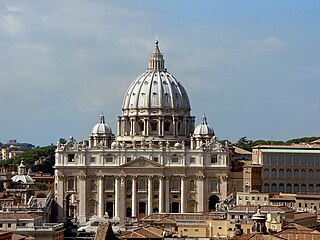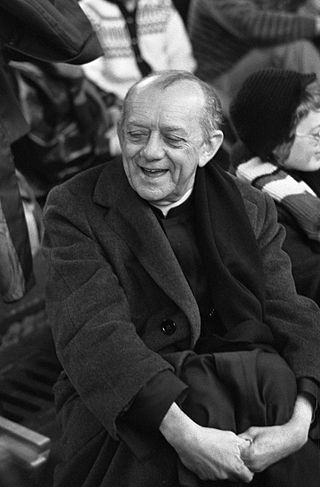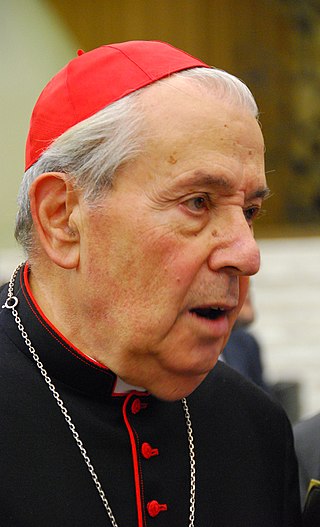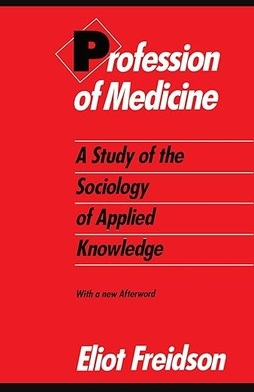
The Second Ecumenical Council of the Vatican, commonly known as the Second Vatican Council or Vatican II, was the 21st and most recent ecumenical council of the Catholic Church. The council met in Saint Peter's Basilica in Vatican City for four periods, each lasting between 8 and 12 weeks, in the autumn of each of the four years 1962 to 1965. Preparation for the council took three years, from the summer of 1959 to the autumn of 1962. The council was opened on 11 October 1962 by John XXIII, and was closed on 8 December 1965 by Paul VI.
Lumen gentium, the Dogmatic Constitution on the Church, is one of the principal documents of the Second Vatican Council. This dogmatic constitution was promulgated by Pope Paul VI on 21 November 1964, following approval by the assembled bishops by a vote of 2,151 to 5. As is customary with significant Roman Catholic Church documents, it is known by its incipit, "Lumen gentium", Latin for "Light of the Nations".
College of Bishops, also known as the Ordo of Bishops, is a term used in the Catholic Church to denote the collection of those bishops who are in communion with the Pope. Under Canon Law, a college is a collection of persons united together for a common object so as to form one body. The Bishop of Rome is the head of the college.

Hélder Pessoa Câmara was a Brazilian Catholic prelate who served as Archbishop of Olinda and Recife from 1964 to 1985 during the military dictatorship in Brazil. He was declared a Servant of God in 2015.
An episcopal conference, sometimes called a conference of bishops, is an official assembly of the bishops of the Catholic Church in a given territory. Episcopal conferences have long existed as informal entities. The first assembly of bishops to meet regularly, with its own legal structure and ecclesial leadership function, is the Swiss Bishops' Conference, which was founded in 1863. More than forty episcopal conferences existed before the Second Vatican Council. Their status was confirmed by the Second Vatican Council and further defined by Pope Paul VI's 1966 motu proprio, Ecclesiae sanctae.
The Coetus Internationalis Patrum was the most important and influential interest group of the "conservative" or "traditionalist" minority at the Second Vatican Council.

Achille Silvestrini was an Italian cardinal of the Catholic Church. He served in the Vatican diplomatic corps, either in Rome or abroad, from 1953 to 1990, and later as Prefect of the Congregation for the Oriental Churches from 1991 to 2000.
The historical roots of Papal primacy can be traced back to the early centuries of Christianity, wherein the bishop of Rome, commonly referred to as the Pope, gradually accrued increasing authority and recognition. A confluence of historical, theological, and political factors contributed to this development.

Several differences exist within the organizational structures and governance of the Catholic Church and the Eastern Orthodox Church. These are distinguished from theological differences which are differences in dogma and doctrine. A number of disagreements over matters of ecclesiology developed slowly between the Western and Eastern wings of the State church of the Roman Empire centered upon the cities of Rome and New Rome/Constantinople respectively. The disputes were a major factor in the formal East-West Schism between Pope Leo IX and Patriarch Michael I in 1054 and are largely still unresolved between the churches today.

Lorenzo Baldisseri is an Italian prelate of the Catholic Church who served as Secretary General of the Synod of Bishops from 21 September 2013 until 15 September 2020. He was made a cardinal in 2014. He previously served as Secretary of the Congregation for Bishops after more than twenty years in the diplomatic service of the Holy See that included stints as Apostolic Nuncio to Haiti, Paraguay, India, Nepal, and Brazil.
In the Catholic Church, the Synod of Bishops, considered as an advisory body for the pope, is one of the ways in which the bishops render cooperative assistance to him in exercising his office. It is described in the 1983 Code of Canon Law as "a group of bishops who have been chosen from different regions of the world and meet at fixed times to foster closer unity between the Roman Pontiff and bishops, to assist the Roman Pontiff with their counsel in the preservation and growth of faith and morals and in the observance and strengthening of ecclesiastical discipline, and to consider questions pertaining to the activity of the Church in the world."
The new evangelization is the particular process by which baptized members of the Catholic Church express the general Christian call to evangelization.
In the Catholic Church, collegiality refers to "the Pope governing the Church in collaboration with the bishops of the local Churches, respecting their proper autonomy." In the early church the popes sometimes exercised moral authority rather than administrative power, and that authority was not exercised extremely often; regional churches elected their own bishops, resolved disputes in local synods, and only felt the need to appeal to the Pope under special circumstances.

The SecondExtraordinary General Assembly of the Synod of Bishops, was held in Vatican City from 24 November to 8 December 1985 on the topic of The Twentieth Anniversary of the Conclusion of the Second Vatican Council. The synod was a gathering of 165 bishops and other participants to celebrate, verify, and promote the council, also known as Vatican II. The participants evaluated the implementation of the changes heralded by Vatican II in the past, and discussed how best to apply them in the future. The bishops discussed topics including secularism, evangelization, the universal call to holiness, formation of seminarians, catechism, liturgy, communion, the role of the laity, ecumenism, the preferential option for the poor, and Catholic social teaching.

Medical sociology is the sociological analysis of medical organizations and institutions; the production of knowledge and selection of methods, the actions and interactions of healthcare professionals, and the social or cultural effects of medical practice. The field commonly interacts with the sociology of knowledge, science and technology studies, and social epistemology. Medical sociologists are also interested in the qualitative experiences of patients, often working at the boundaries of public health, social work, demography and gerontology to explore phenomena at the intersection of the social and clinical sciences. Health disparities commonly relate to typical categories such as class and race. Objective sociological research findings quickly become a normative and political issue.
Episcopalis communio is an apostolic constitution promulgated by Pope Francis on September 15, 2018. It takes note of the various organizations used during the previous Synod of Bishops, and defines that its final document "participates in the ordinary magisterium."
Eliot Freidson was a sociologist and medical sociologist who worked on the theory of professions. Charles Bosk says that Freidson was a founding figure in medical sociology who played a major role in the growth and legitimization of the subject. The American Sociological Society awards the Eliot Freidson Outstanding Publication Award for medical sociology every two years.

Profession of Medicine: A Study of the Sociology of Applied knowledge is a book by medical sociologist Eliot Freidson published in 1970. It received the Sorokin Award from the American Sociological Association for most outstanding contribution to scholarship and has been translated into four languages.

The 16th Ordinary General Assembly of the Synod of Bishops, commonly referred to as the synod on synodality, is an ongoing synod of bishops of the Catholic Church which will conclude in October 2024 and has as its theme "For a synodal Church: communion, participation and mission". It has been described as the culmination of Pope Francis's papacy and the most important event in the Church since the Second Vatican Council.
Synodality is in the Catholic Church a term "often used to describe the process of fraternal collaboration and discernment that bodies like the Synod of Bishops were created to express".







